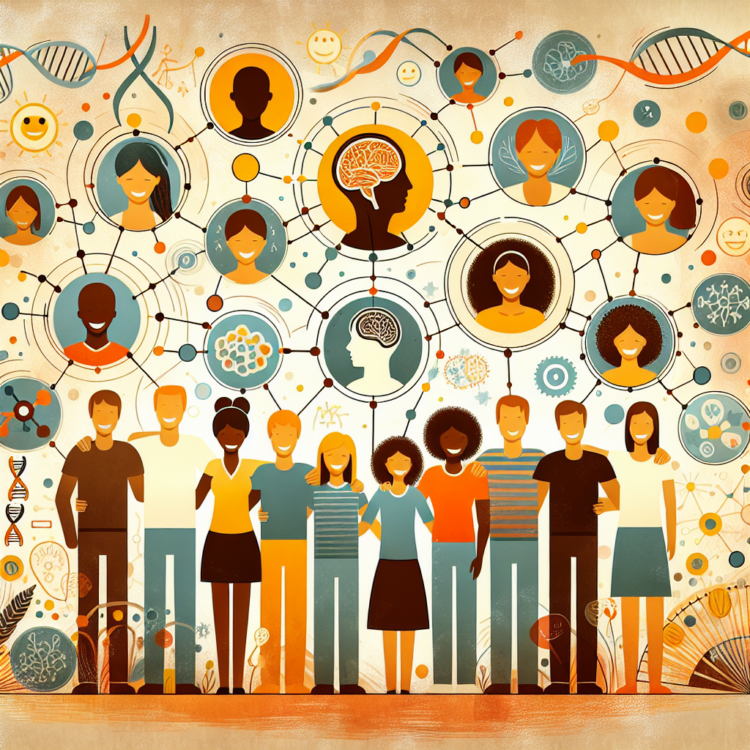Friends of young people who self-harm or have suicidal thoughts may need additional support to prevent negative outcomes on their own mental wellbeing, in addition to the support needed by young people who self-harm.
Friends of young people who self-harm or have suicidal thoughts may need additional support to prevent negative outcomes on their own mental wellbeing, in addition to the support needed by young people who self-harm.
While much research rightly focuses on young people at risk and their families, friendships are rarely considered in research into self-harm, according to a new study from experts at the University of Birmingham.
In an extensive literature review, the team set out to draw together all the research in this area to reach a better understanding of common themes around friendship and self-harm in young people.
The study, published in The Lancet Psychiatry, considers the experiences and perspectives of young people who self-harm, and of friends who find themselves in a position of supporting a young person who is self-harming.
Self-harm is considered a major public health concern, with between 10-20% of young people aged between 11 and 25 self-harming – a figure that has been steadily rising in recent years.
During adolescence, peer relationships become increasingly important. The associations between friendships and self-harm are known to be crucial, but the nature, direction and strength of these is unclear. Our review shows that young people who self-harm are in need of support, and often confide in their friends who they trust and feel close to.
However, this may have a knock-on impact on their friends’ wellbeing. A specific recommendation based on this review is that, when a young people disclose that their friend has self-harmed, the adults involved should also extend support to the young people who made the disclosure.
Lead author on the paper, ESRC-funded PhD Delfina Bilello, of the University’s School of Psychology and Institute for Mental Health, said: “Self-harm often starts during adolescence. Since this is often the time when young people start to spend more time with their friends and are most likely to confide in friends, it’s really important that we try to understand this dynamic, and the potential impact – whether positive or negative – on both sides of the friendship.”
Key themes uncovered by the researchers included:
-
Social transmission of self-harm, also known as ‘contagion’, is the process in which young people may be drawn towards self-harm during the process of having and or supporting a friend who self-harms
-
The importance of friendships as primary sources of support for young people self-harming or tending towards self-harm
-
Negative outcomes among friends bereaved from a peer’s suicide and friends supporting a young person who self-harms, including symptoms of depressions, anxiety. PTSD and grief.
The review identified that women and girls appeared most likely to be exposed to and influenced by friends’ self-harm behaviours, as well as more likely to be supporters – and more likely to experience negative outcomes from this role. However, this could also be due in part to underreporting of these behaviours by men and by gender minorities.
Although the study did not explicitly set out to evaluate interventions, a number of promising avenues were identified. These include school and community-based universal interventions around peer support and relationships, as well as postventions and interventions specifically aimed at bereaved friends and peers.
Delfina Bilello added: “Our study offers robust justification for further work to identify and develop tailored interventions for young people who are supporting at-risk friends.”
ENDS
For media enquiries please contact Press Office, University of Birmingham, tel: +44 (0)121 414 2772: email: pressoffice@contacts.bham.ac.uk
Notes to editor:
-
The University of Birmingham is ranked amongst the world’s top 100 institutions. Its work brings people from across the world to Birmingham, including researchers, teachers and more than 8,000 international students from over 150 countries.
-
‘A systematic review and narrative synthesis exploring the relationship between friendships/ peer relationships, and self-harm ideation and behaviour among young people’ – Delfina Bilello, Ellen Townsend, Matthew R Broome, Gregory Armstrong, and Stephanie Burnett Heyes is published in The Lancet Psychiatry.
-
Participating institutions: University of Birmingham, UK; University of Nottingham, UK; University of Melbourne, Australia,
Journal
The Lancet Psychiatry
Method of Research
Literature review
Subject of Research
People
Article Title
A systematic review and narrative synthesis exploring the relationship between friendships/ peer relationships, and self-harm ideation and behaviour among young people
Article Publication Date
15-Jul-2024




